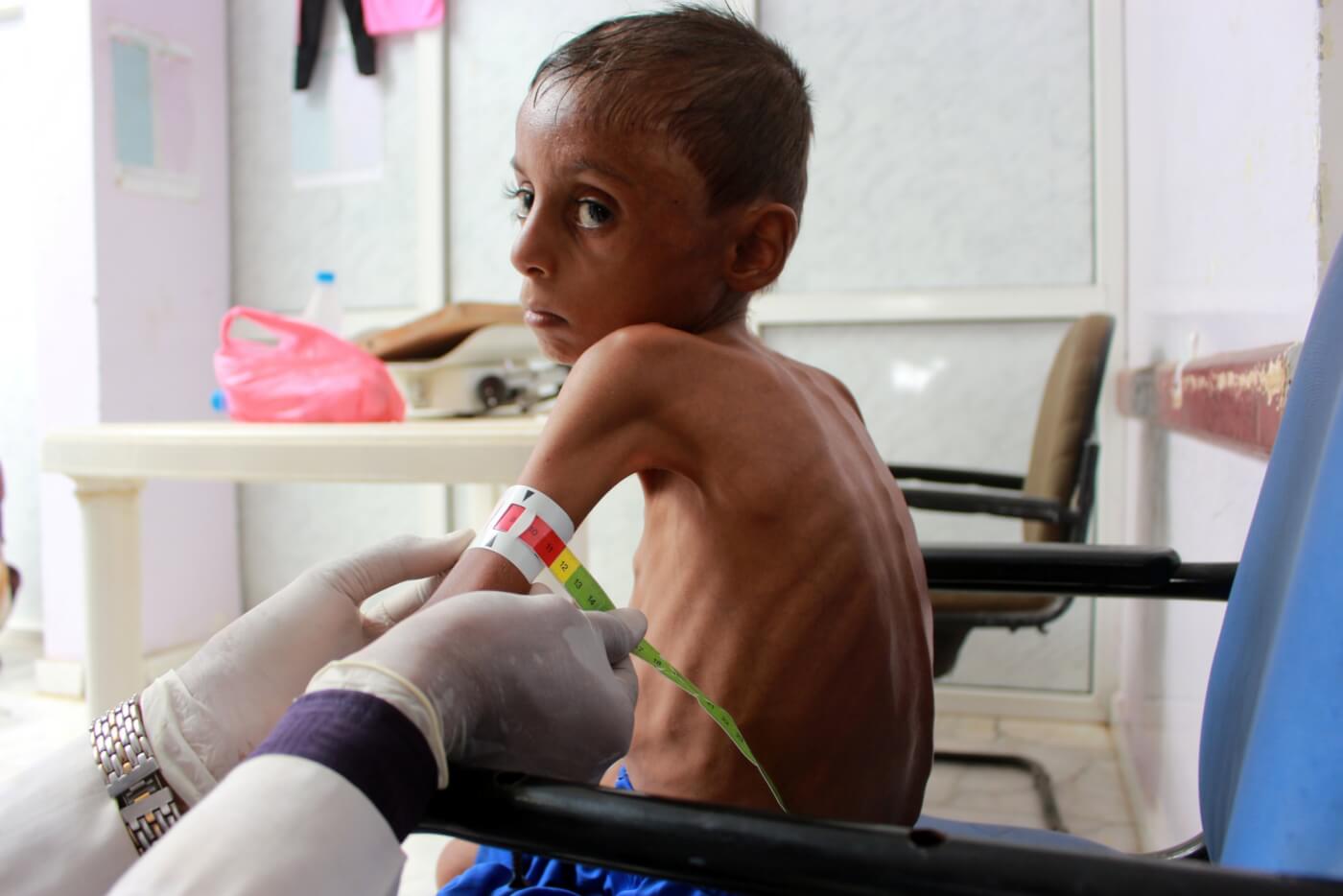Yemen is in danger of an imminent return to devastating levels of hunger and food insecurity, according to new analysis released by UN agencies. A new report published on 22 July said Yemen was returning to “alarming” levels of food insecurity. Another report released today, 23 July, says Yemen might have the highest rate of confirmed virus deaths in the world.
The World Food Programme (WFP), Food and Agriculture Organization (FAO) and Unicef say that the percentage of the population predicted to face acute food insecurity in southern areas of the country will rise from 25% to 40% by the end of the year.
Around 80% of the population relies on humanitarian aid yet famine has never been officially declared in Yemen. UN warnings in late 2018 of impending famine prompted an aid ramp-up after which the World Food Programme fed up to 13 million a month.
“Now all those improvements are at risk,” WFP spokesperson Elisabeth Byrs told Reuters.
Despite mounting economic and health pressures on Yemen, the world’s largest aid response is scaling back due to insufficient funding. Nutrition services for 2.5 million children could cease by the end of August. The WFP already in April halved food aid to alternate months in north Yemen.
David Beasley, executive director of WFP, described the situation as “heartbreaking”.
“Unless the international community steps up with an urgent injection of funds, we are going to find ourselves right back where we were in 2018, when we had to fight our way back from the brink of a full-scale famine.”
“The Yemeni people have already been ravaged by years of conflict-fuelled hunger and malnutrition, and now Covid-19 is ratcheting up their misery. The world needs to open its eyes to this unfolding humanitarian disaster before it’s too late.”
The report says economic issues are one of the major concerns, with local currency in freefall, rampant inflation and rising food prices, and a near depletion of foreign exchange reserves. The country’s continuing conflict is also cited as one of the main causes, with coronavirus affecting food availability, access and market supply, and income-earning opportunities and wages.
According to a new report, nearly 100 healthcare workers have died from coronavirus in Yemen, one of the highest figures worldwide for medical staff. MedGlobal, an international health charity, said in the report released on 23 July that at least 1,610 Covid-19 cases have been reported in war-torn Yemen, including 446 deaths.
This means the rate of confirmed virus deaths in Yemen – 27% – is five times the global average and possibly the highest in the world.
Only half the country’s medical facilities are functioning and there are fewer than 10 medics for every 10,000 people, less than half the World Health Organisation benchmark for basic health coverage.
“More than one in four patients in Yemen who contract Covid-19 will die,” Dr Zaher Sahloul, head of MedGlobal, told the Independent.
Compounding all these issues have been the recent swarms of desert locust and armyworm infestations that have hit crops, with cereal production this year forecast at 365,000 metric tonnes – less than half prewar levels.
War-ravaged Yemen is divided between the internationally recognised government temporarily based in the south and the Houthi group that ousted it from power in the capital, Sanaa, in late 2014. The ongoing conflict has killed more than 100,000 since 2015 and has caused what the UN says is the world’s worst humanitarian crisis.

